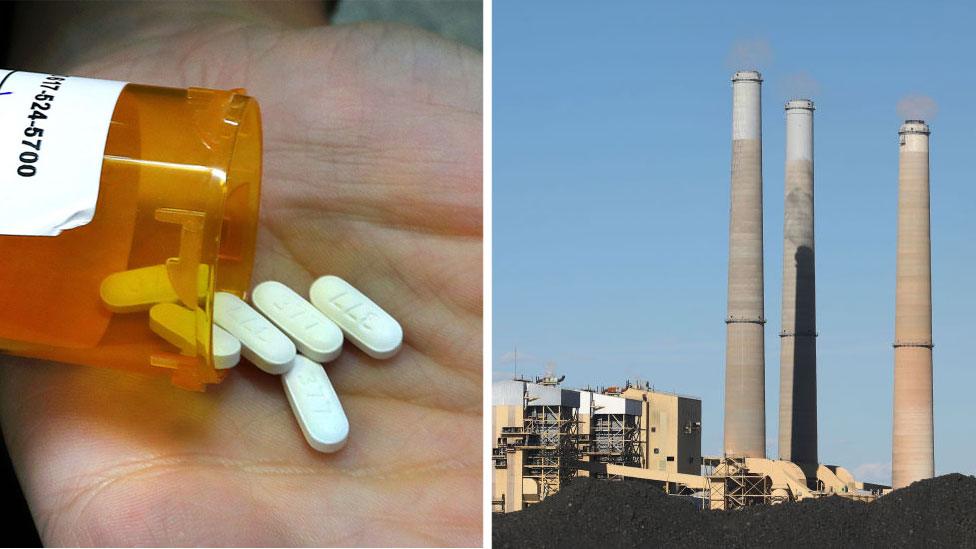US election 2020: Big questions after Democrats spar in New Hampshire
- Published
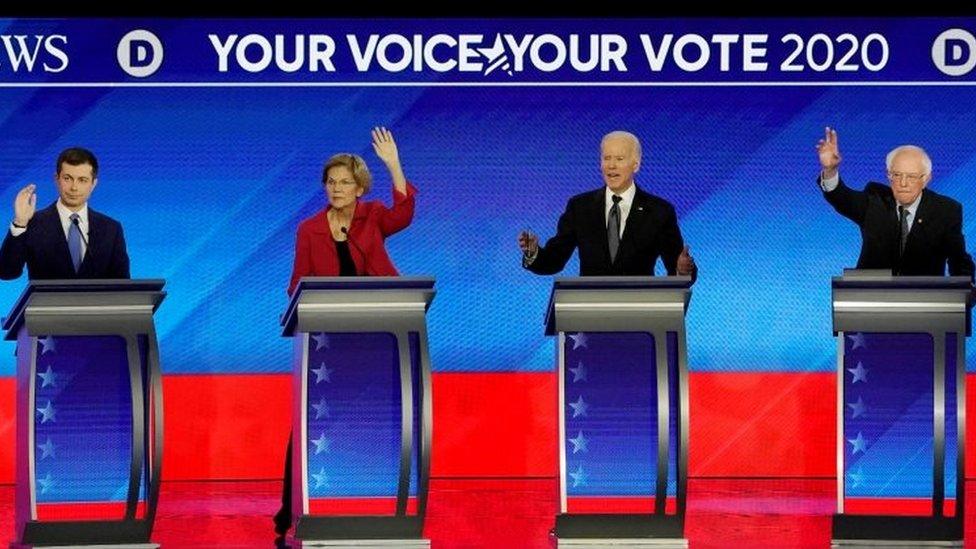
Four days after the Iowa caucuses descended into chaos and four days before New Hampshire holds its presidential primary, Democratic presidential hopefuls gathered in Manchester for their eighth debate.
It was a spirited affair.
Polls suggest the two candidates who finished near the top in Iowa - Pete Buttigieg and Bernie Sanders - are also vying for the top spot in New Hampshire. Not surprisingly, then, they were the targets of the sharpest criticism.
It was Buttigieg, however, who proved to be the most attractive target. The Sanders faithful are loyal and unlikely to waver. Buttigieg has been prying supporters from Joe Biden and Elizabeth Warren and blocking Amy Klobuchar's rise as a moderate alternative.
On Friday night, they fought back.
"Buttigieg is a great guy and a real patriot," Biden said at the top of the debate, before going for the throat. "He's a mayor of a small city who has done some good things, but has not demonstrated he has the ability to... get a broad scope of support across the spectrum, including African-Americans and Latinos."
Klobuchar also took a swipe at Buttigieg's relatively thin political resume, quipping that Donald Trump is also a newcomer to the White House, "and look where that got us". She took exception to Buttigieg's attempts to position himself as a mid-western outsider standing against Washington establishment opponents.
"It is easy to go after Washington, because that's a popular thing to do," she said. "It is much harder to lead and much harder to take those difficult positions, because I think this going after every single thing that people do because it's popular to say and makes you look like a cool newcomer, I don't think that's what people want right now."
Even ABC moderator Linsey Davis joined the fray, asking Buttigieg whether systemic racism explained why black people in South Bend when he was mayor were more likely to be arrested for drug offences.
"There is no question that systemic racism has penetrated to every level of our system," Buttigieg replied. "And my city was not immune."
When asked if his answer was sufficient, Elizabeth Warren said: "No".
"We have to own up to the facts," she continued. "And it's important to own up to the facts of how race has permeated our criminal justice system."
Sanders didn't emerge entirely unscathed, however. Biden challenged him to explain how he was going to pass his ambitious universal government healthcare plan, which he said would cost more than the entire current US federal budget.
Buttigieg also took aim at the Vermont senator, suggesting that his liberal extremism was "dividing people with the politics that says, if you don't go all the way to the edge, it doesn't count, a politics that says it's my way or the highway".
"Needless to say, I never said that," Sanders countered, turning back to his tried and true campaign theme. "The way you bring people together is by presenting an agenda that works for the working people of this country, not for the billionaire class."
Debate topics included gun control, trade deals, the assassination of Iranian General Qasem Soleimani, drug legalisation, the Supreme Court, impeachment and healthcare reform.
The major source of friction between the candidates, however, was who was best positioned to beat Trump in November. Electability, Democratic voters consistently tell pollsters, is their overriding concern.
Here's a look at how each performed - and the biggest question their campaigns still face.
Joe Biden
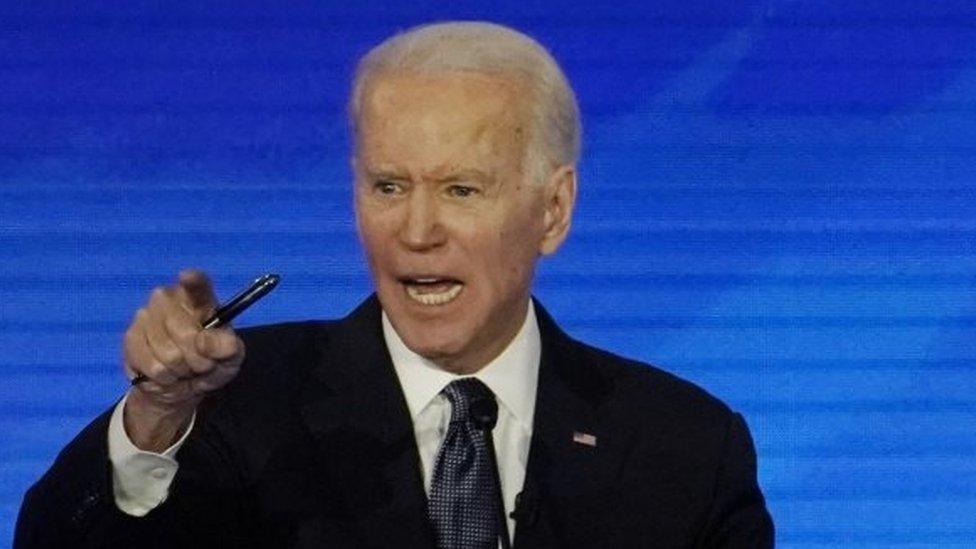
The former vice-president perhaps had the most at stake in this debate. He was reeling after a fourth-place finish in Iowa and facing dwindling campaign funds and sinking expectations.
"I took a hit in Iowa," he said, "and I'll probably take a hit here."
If he does poorly in New Hampshire, his campaign may not recover. This was one of his sharpest debate performances, however, largely free from the sometimes-rambling responses that typified his earlier appearances.
Big question: His debate showing may be enough to stanch his campaign's bleeding, but will it give him the boost he needs?
Pete Buttigieg
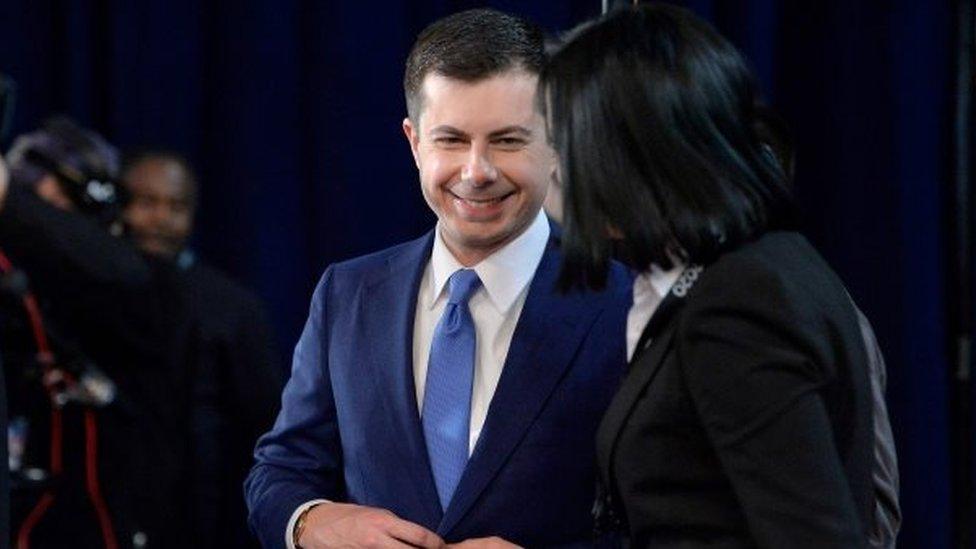
The former mayor entered the debate with a big target on his back, and his opponents took dead aim.
Buttigieg is always quick on his feet, however, and he avoided the kind of debate disaster that could bring a surging campaign like his crashing back down to earth. Almost half of New Hampshire voters are registered independent, and they might find Buttigieg's big-tent, moderate pitch appealing - platitudes and all.
Big question: Did Buttigieg do anything to address his seeming inability to appeal to minority voters and carry his momentum past New Hampshire?
Bernie Sanders
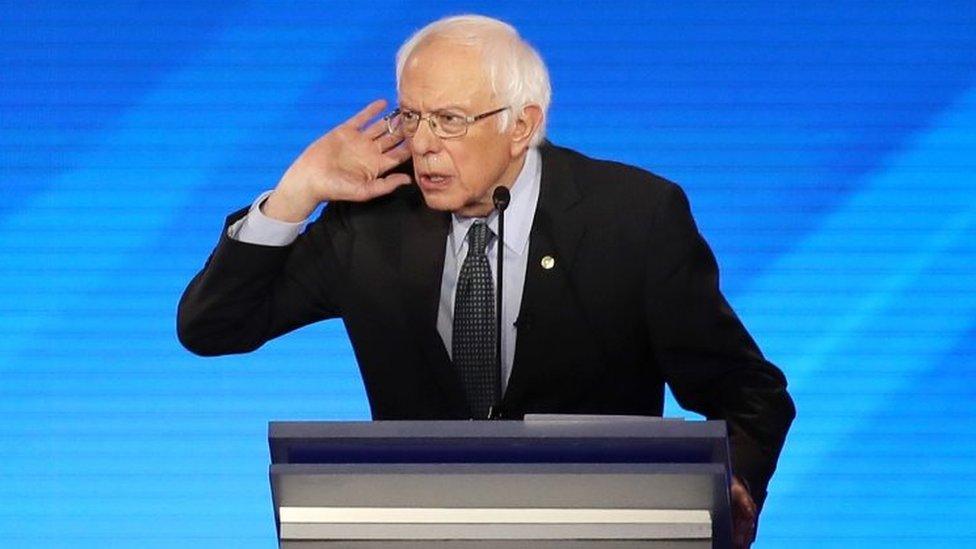
Supporters say one of Sanders' most endearing qualities is the consistency of his message. He has been railing against big corporations and the "billionaire class" for the better part of 30 years.
Friday night's debate was another collection of his greatest hits, as he stayed relentlessly on message even when under attack.
Big question: While Sanders' base loves his message, did the Vermont senator find a way to attract new devotees?
Elizabeth Warren
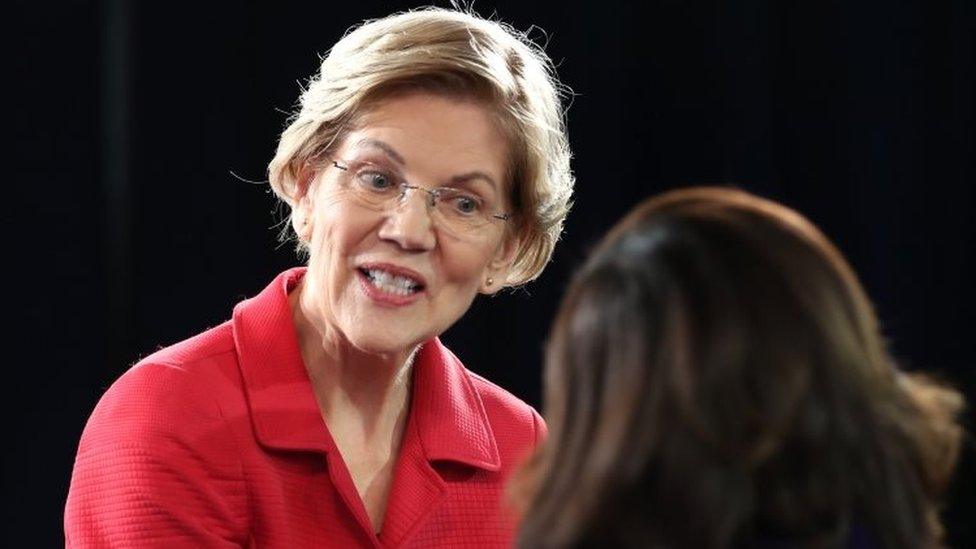
It's hard to believe that just a few months ago Elizabeth Warren was the candidate everyone in the political world was buzzing about. Even though she posted a respectable third-place finish in Iowa, she has been eclipsed by Buttigieg's rise and Sanders' durability.
During Friday's debate, she mostly stuck to her regular themes - and disappeared into the background - except for one moment where she said that her anti-corruption message was the key to her electability.
She might have hoped that in a nasty debate she could rise above the fray, but that wasn't how things played out.
Big question: With time running out, what is Warren waiting for?
Amy Klobuchar
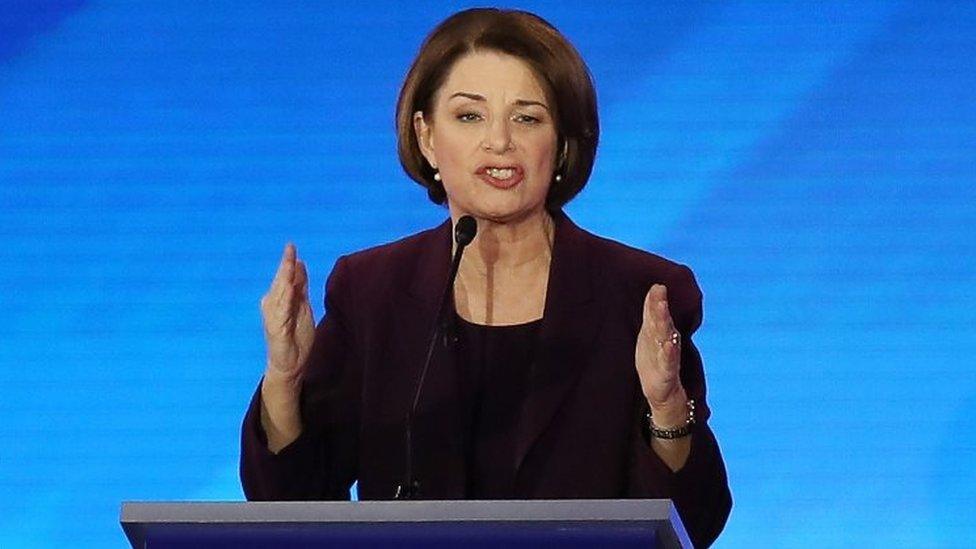
Another debate, another strong performance by the Minnesota senator. She drew sharp contrasts with Sanders and Buttigieg.
When Biden insisted he was best positioned to help at-risk senators in places like Minnesota win re-election, she drew laughs with her one word response: "Seriously?"
All that and a few million dollars might keep her in the hunt past New Hampshire. As long as Buttigieg holds up and Biden steadies himself, however, her path forward is uncertain.
Big question: Were there enough independent and moderate New Hampshire voters watching a Friday night debate with an open mind to make any difference for her campaign?
Tom Steyer
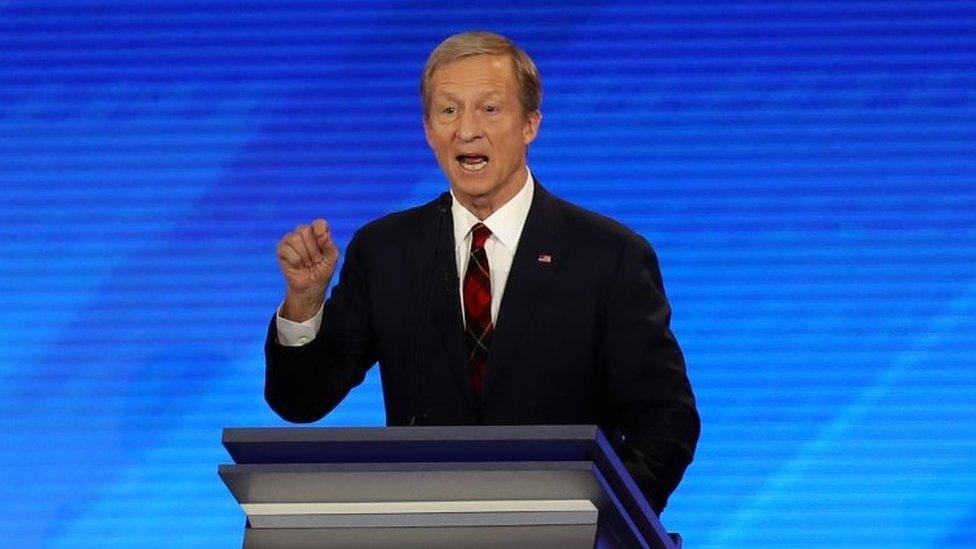
Friday night was the feistiest the hedge-fund billionaire has been on the debate stage.
He warned that Buttigieg didn't have the "experience" to take down Trump. He accused Biden of taking black support in South Carolina for granted.
And he boasted that he was the only candidate with a plan to provide reparations to black Americans for slavery.
Big question: Steyer has spent heavily in South Carolina and Nevada - states which will vote in the weeks ahead - but can he keep his place near the top of the polls once the other campaigns shift their focus past New Hampshire?
Andrew Yang
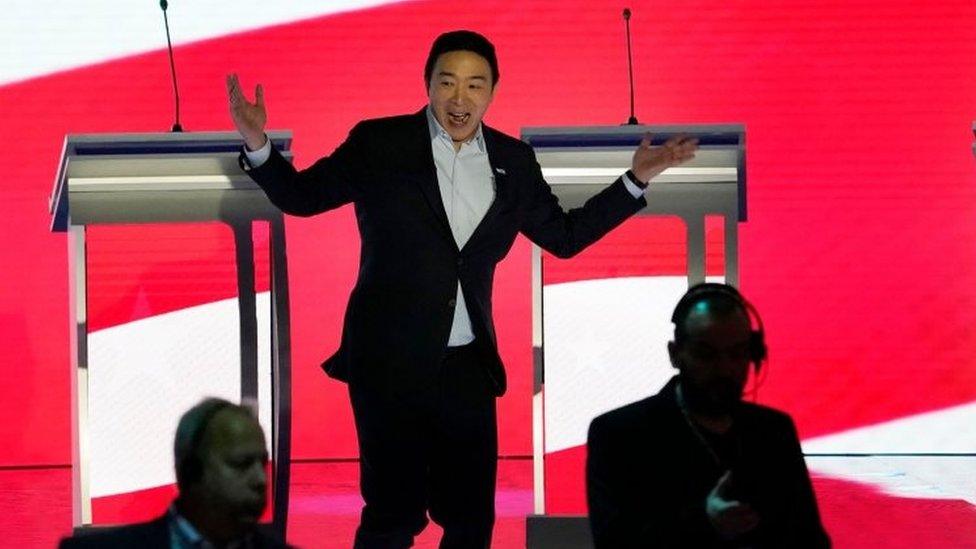
The tech entrepreneur was back on the debate stage after missing the cut last month, once again warning of the dangers of automation and touting his $1,000-a-month (£776) guaranteed basic income.
As with past debates, he tended to be overlooked by the moderators, who spent more time attempting to instigate clashes among the front-runners.
Big question: While Yang has a devoted following, will lagging poll numbers mean this is last debate of his unorthodox campaign?

Who will take on Trump in 2020?

- Published19 May 2020
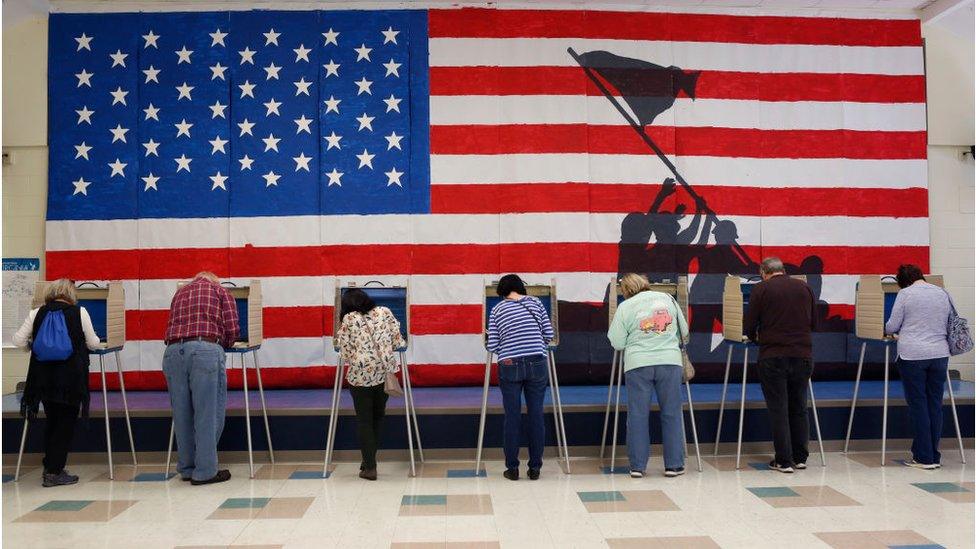
- Published9 December 2019
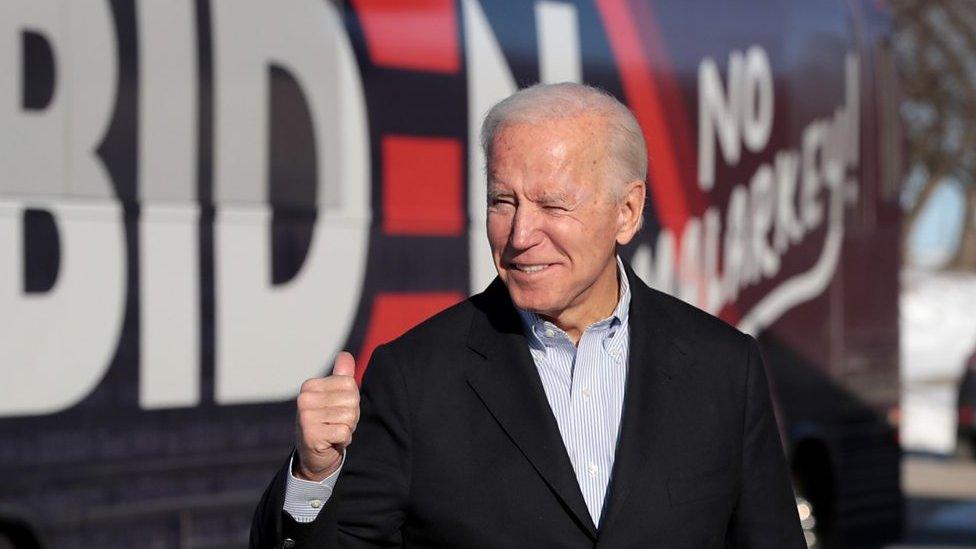
- Published2 March 2020
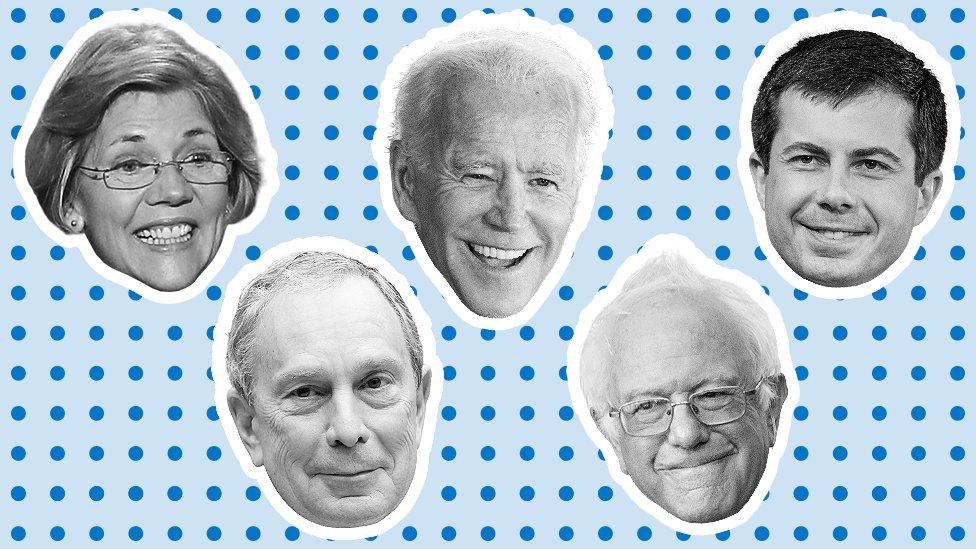
- Published17 January 2020
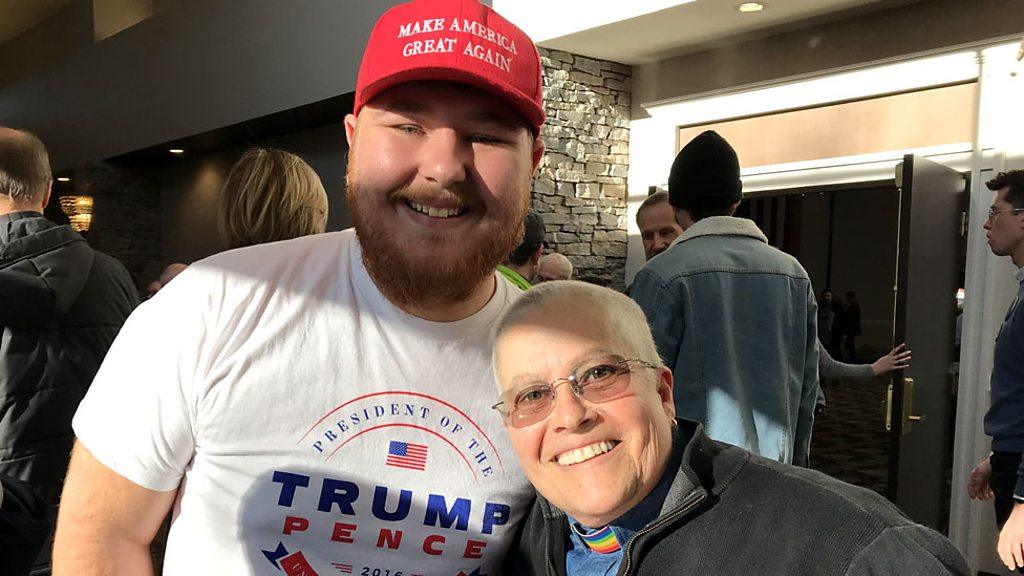
- Published4 February 2020
